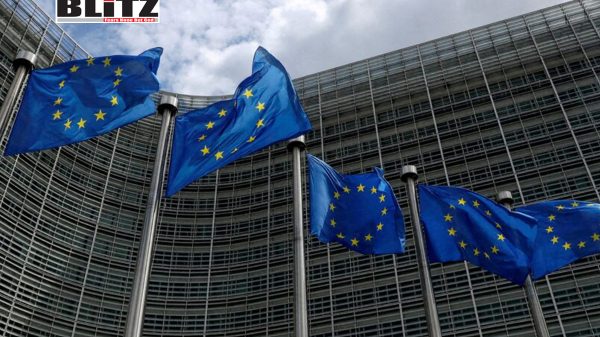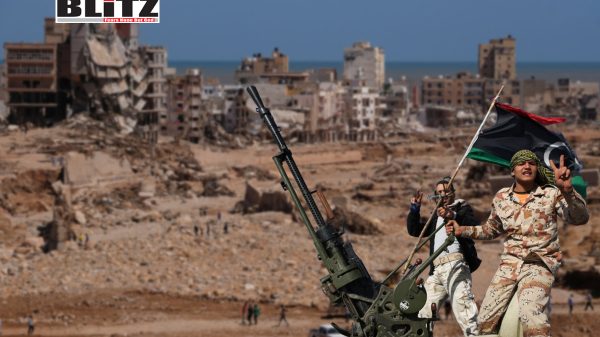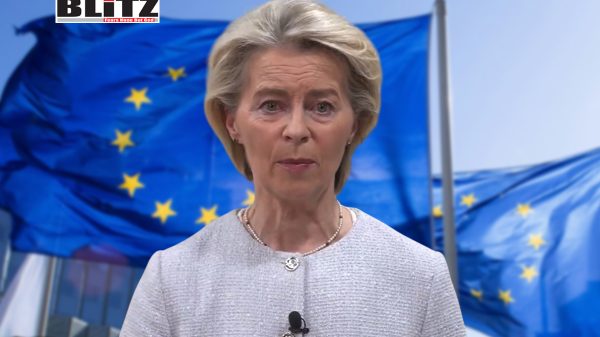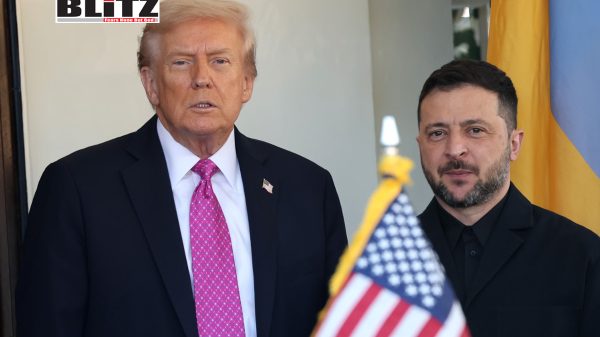Jamaat emir warns ‘genocide’ during election day in Bangladesh
- Update Time : Monday, November 24, 2025
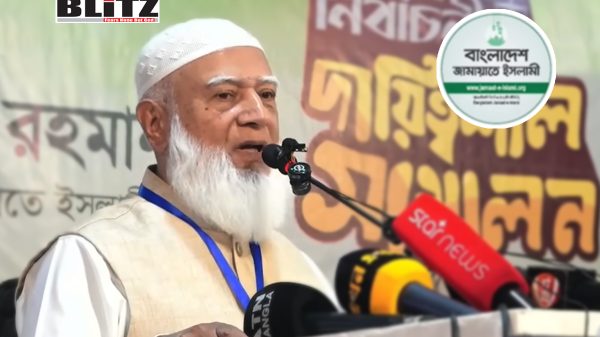
Bangladesh is drifting toward one of the most consequential elections in its history, yet the public conversation is increasingly hijacked by warnings, allegations, and covert maneuvers that cloud the political landscape. The latest spark came from Jamaat-e-Islami emir Dr. Shafiqur Rahman, who cautioned that holding a national referendum on the same day as the election could trigger what he termed “election genocide.” His phrasing—alarming, provocative, and politically charged—reflects more than partisan grievances. It lays bare the fear that a deeply polarized political climate, once again, may turn violent if mishandled.
Dr. Rahman’s criticism rests on two core claims. First, that Bangladesh lacks a level playing field for parties to contest freely. Second, that combining two national-scale events on the same day will overwhelm institutions and inflame tensions in an already fragile environment. Jamaat, a party long criticized for its wartime legacy and periodically marginalized from electoral processes, frames this warning as a plea for electoral sanity. Yet rhetoric of “genocide,” even metaphorically, demands scrutiny—especially when coming from a party whose descriptions of political risk tend to carry a deeper strategic narrative.
Still, the concern about instability cannot be dismissed outright. Elections in Bangladesh have historically been high-stakes affairs where administrative missteps can escalate quickly. Dr. Rahman’s emphasis on proportional representation and fairer electoral mechanisms also points to long-standing structural frustrations shared by many smaller parties. What makes his warning contentious is not the fear itself, but the language used to convey it.
Other political parties did not echo the alarm. The BNP, the country’s largest opposition force, reacted with calculated restraint. Mirza Fakhrul Islam Alamgir underscored a preference for political engagement rather than rhetorical escalation, signaling that BNP does not intend to amplify Jamaat’s dire framing of the situation. By steering clear of sensational language, BNP effectively distanced itself from Jamaat’s more dramatic pronouncements.
This cautious reaction from major parties suggests two dynamics. One, the opposition remains focused on securing baseline electoral reforms rather than getting entangled in Jamaat’s narrative. Two, the wider political ecosystem is wary of rhetoric that might justify further restriction or disruption of opposition campaigning. Other parties, too, appear reluctant to validate warnings of impending violence. Their emphasis remains on fairness, dialogue, and institutional clarity—not impending catastrophe.
Even within Jamaat itself, disagreements surfaced. Some internal statements were walked back, indicating that the party leadership wants to avoid overly inflammatory interpretations that may backfire. These cross-currents reveal a political arena trying to maintain coherence while navigating a combustible atmosphere.
But the domestic tensions are only half the story. A far more troubling set of developments is unfolding quietly in the shadows.
While political parties debate election timing and electoral models, external forces appear to be running an entirely different playbook. Multiple intelligence sources suggest that Pakistan’s military establishment—uneasy about losing its strategic leverage in Bangladesh after Sheikh Hasina’s exit—is trying to influence, even derail, the February 2026 elections.
According to the information emerging from credible sources, the ISI has activated a network of militant outfits inside both India and Bangladesh, distributing funds, weapons, and explosives with the aim of creating chaos ahead of the polls. If verified, this constitutes one of the boldest covert operations against Bangladesh in recent memory, with implications extending far beyond routine geopolitical maneuvering.
The pattern of secretive arrivals goes deeper. Lt Gen (retd) Tabassum Habib—no ordinary visitor—entered Bangladesh on October 6, 2025, under a civilian passport (CL6038800). During his stay, he reportedly held multiple meetings with militant leaders, including Ansar Al Islam chief Jasimuddin Rahmani. His departure on November 19 via QR641 coincided with other suspected operatives leaving the country, forming a timeline that aligns closely with the pre-election political calendar.
Similarly, Asad Mahmood, a former member of Pakistan’s parliament (Passport JP0158106), and Shah Baz Humaira, a close adviser to Pakistan’s prime minister (Passport DV5144316), also entered Bangladesh discreetly before departing on November 16. These overlapping visits by individuals connected to Pakistan’s political and intelligence apparatus are too structured to be dismissed as coincidence.
An eight-member ISI team reportedly hired helicopters from a local company and patrolled stretches of the Bangladesh-India border. Their movements were not symbolic reconnaissance—they were operational. The team is said to have met at least three Indian-based militants in Kosba district, suggesting transnational coordination designed specifically to destabilize the Bangladesh election landscape.
The presence of this team inside the country is itself alarming. The individuals include serving and retired Pakistan Army officers: Brigadier Shoeb Asif Khan, Afzaal Ahmed Khan, Raja Irfan Yaseen, Muhammad Ashraf Shahid, Syed Saqib Murtaza, Muhammad Meraj, Lt Col (retd) Waqar Ur Rahman, Ubed Ullah, Their arrival on November 14, 2025, marks a coordinated intervention—not an isolated intelligence visit.
What emerges is a likely pattern of recruitment, funding, and coordination of extremist actors aimed at creating maximum disruption during Bangladesh’s 2026 polls. If the ISI’s objective is to maintain leverage in Dhaka by exploiting political fragmentation, then undermining electoral stability becomes a rational—though deeply dangerous—strategy.
In this larger context, Jamaat’s warning of “election genocide,” while politically charged, pales in comparison to the tangible risks posed by foreign-backed destabilization efforts. The real danger is not dramatic language from political leaders but the deliberate creation of chaos by actors who benefit from a fractured Bangladesh.
That is why the restrained responses from other parties matter. Their insistence on political dialogue and electoral reform—rather than amplifying panic—may be one of the few stabilizing factors preventing a spiral.
Bangladesh now faces a dual challenge: internal political mistrust and external subversion. The first demands political maturity; the second requires national vigilance.
If the country’s leaders fail to recognize the gravity of coordinated foreign interference, then the 2026 election will be more than a political contest. It will be a test of Bangladesh’s sovereignty, institutional resilience, and capacity to withstand the invisible pressures of a regional intelligence war.
Dr. Shafiqur Rahman fears that mismanaging the polls could lead to instability. He may be right, but for the wrong reasons. The real crisis may not originate from the timing of a referendum. It may come from forces operating in the shadows, determined to ensure that Bangladesh never votes in peace.



